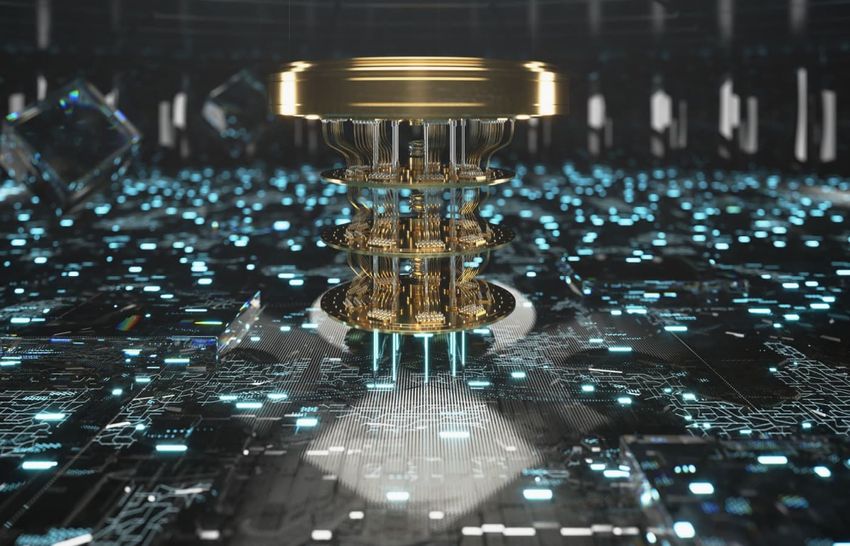Quantum computing, a revolutionary advancement in computational technology, promises to transform multiple industries, and artificial intelligence (AI) is one of its most significant beneficiaries. By harnessing the principles of quantum mechanics, quantum computing can solve complex problems that are practically unsolvable with classical computers. When combined with AI, it has the potential to unlock unprecedented possibilities in machine learning, optimization, cryptography, and beyond.
In this article, we’ll explore the fundamentals of quantum computing, its intersection with AI, and the transformative impact it could have on the future of technology.
What Is Quantum Computing?
Quantum computing is based on quantum mechanics, a branch of physics that describes the behavior of matter and energy at atomic and subatomic levels. Unlike classical computers, which process information in binary bits (0s and 1s), quantum computers use quantum bits or qubits, which can exist in multiple states simultaneously due to a property called superposition.

Key Features of Quantum Computing:
- Superposition: Qubits can represent both 0 and 1 at the same time, exponentially increasing computational power.
- Entanglement: Qubits can be interconnected, meaning the state of one qubit can influence another, even across vast distances.
- Quantum Tunneling: Quantum computers can explore multiple solutions simultaneously, reducing computational time for certain problems.
These features allow quantum computers to solve complex problems much faster than traditional computers, particularly in areas like optimization, cryptography, and data analysis.
How Quantum Computing Enhances AI
AI relies heavily on computational power for tasks like training models, processing massive datasets, and solving optimization problems. Quantum computing can revolutionize AI in the following ways:
1. Speeding Up Machine Learning
Training AI models, especially deep learning networks, is time-intensive. Quantum computing can:
- Accelerate training by optimizing the search for the best model parameters.
- Improve learning algorithms, such as Quantum Machine Learning (QML), which merges quantum mechanics with traditional ML methods.
For example, quantum neural networks (QNNs) leverage quantum principles to achieve faster and more efficient learning compared to classical neural networks.
2. Tackling Complex Optimization Problems
Optimization is at the core of many AI applications, from supply chain management to route planning. Quantum computing excels at solving optimization problems by evaluating numerous possibilities simultaneously, leading to faster and more accurate solutions.
3. Enhancing Natural Language Processing (NLP)
Quantum computing can revolutionize NLP by:
- Enabling better semantic understanding of languages.
- Accelerating computations required for language modeling tasks, such as question answering, translation, and text summarization.
4. Improving AI Algorithms
Quantum computing can fundamentally change how AI algorithms work. For instance:
- Quantum-inspired algorithms like Grover’s algorithm can speed up database searches.
- Quantum-enhanced sampling methods can improve probabilistic models, such as Bayesian networks.
5. Handling Big Data
AI thrives on big data, but processing and analyzing such data can be slow and computationally expensive. Quantum computers can process large datasets more efficiently, enabling AI models to scale to previously unmanageable sizes.
Potential Applications of Quantum Computing in AI
The convergence of quantum computing and AI has the potential to disrupt various industries. Here are some key applications:
- Healthcare:
- Drug discovery through quantum simulations of molecular interactions.
- Improved diagnostic tools using quantum-enhanced machine learning.
- Finance:
- Risk analysis and portfolio optimization.
- Fraud detection through advanced pattern recognition.
- Autonomous Vehicles:
- Real-time decision-making and route optimization.
- Faster training of AI models for self-driving cars.
- Climate Science:
- Enhanced weather forecasting.
- Efficient modeling of climate change and its effects.
- Cybersecurity:
- Strengthening encryption techniques.
- Quantum AI to detect and counter cyber threats in real-time.
Challenges and Limitations
While the synergy between quantum computing and AI is promising, there are several challenges to overcome:
- Hardware Limitations: Quantum computers are still in their infancy, with limited qubits and high error rates. Scaling them to handle real-world AI tasks is a significant challenge.
- Cost: Quantum computing technology is currently expensive and accessible only to a few organizations.
- Algorithm Development: Developing quantum algorithms that outperform classical ones for AI tasks is an ongoing research area.
- Skill Gap: Integrating quantum computing into AI requires expertise in both fields, which is currently limited.
The Road Ahead
Despite its challenges, the future of quantum computing in AI is bright. Major technology companies, including Google, IBM, and Microsoft, are heavily investing in quantum computing research. Breakthroughs in quantum hardware, error correction, and algorithm development will further accelerate its adoption.
For AI enthusiasts and researchers, learning about quantum computing can open new doors to innovation. Concepts like quantum machine learning, quantum optimization, and quantum cryptography are likely to become essential skills in the near future.
Conclusion
Quantum computing holds the potential to revolutionize AI by addressing some of its most significant limitations, such as computational inefficiency and scalability. While the field is still evolving, the intersection of these two cutting-edge technologies promises transformative changes across industries. By staying informed and exploring the possibilities, you can be at the forefront of this technological revolution.


